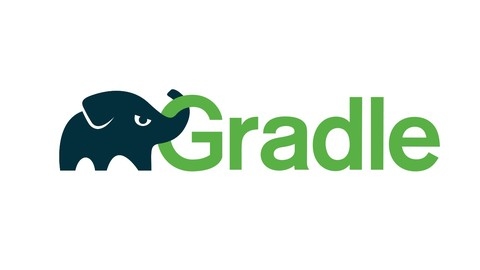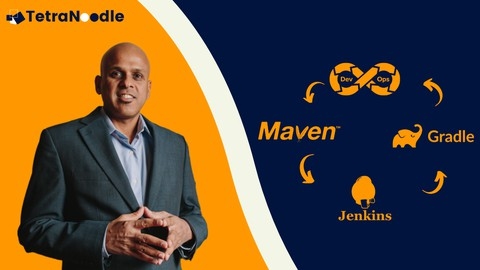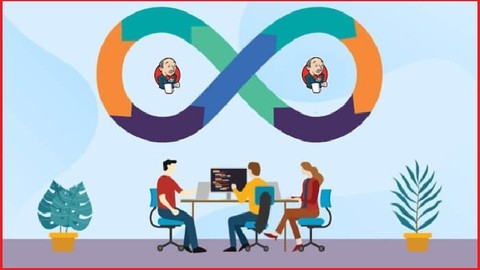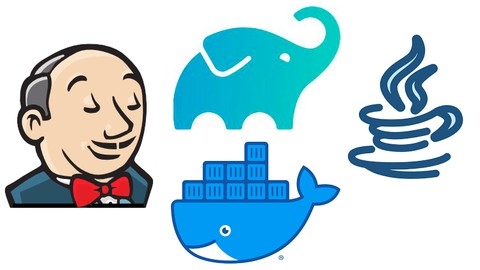Gradle is a powerful build automation tool used extensively in software development, particularly for Java projects.
It simplifies the process of compiling code, managing dependencies, running tests, and ultimately packaging and deploying applications.
Mastering Gradle can significantly enhance your productivity and streamline your development workflow, making it an essential skill for any serious developer.
With the increasing popularity of Gradle, numerous courses have emerged online, making it challenging to find the one that best suits your needs.
You’re looking for a course that not only covers the fundamentals but also delves into advanced concepts, providing practical examples and hands-on exercises to solidify your understanding.
Finding a course that fits your learning style and helps you achieve your Gradle learning goals can be a daunting task.
After careful consideration and review, we’ve identified Gradle Fundamentals as the best overall Gradle course on Udemy.
This comprehensive course provides a solid foundation in Gradle, starting with the basics and progressing to more advanced topics.
It offers a balanced blend of theory and practice, ensuring you grasp the underlying concepts while gaining practical experience through hands-on exercises.
However, the best choice for you might depend on your specific needs and learning preferences.
We’ve compiled a list of other excellent Gradle courses on Udemy, each with its own strengths and focus areas.
Keep reading to explore these alternatives and find the perfect Gradle course to elevate your development skills.
Gradle Fundamentals
This course begins with the fundamentals of Gradle, walking you through its installation and the basics of its domain-specific language.
You quickly dive into the core components of a Gradle build: build files and tasks.
You discover how these elements work together to form the backbone of your projects.
The course explains the directed acyclic graph (DAG) and how it dictates the order of your build tasks through lifecycle phases.
You then move on to building a Java project with Gradle, learning how to compile your code, package it into a JAR file, and utilize the Java application plugin.
You discover how to manage project dependencies, understand the structure of dependency trees, and even learn to publish your own libraries.
The course also covers the essential skill of testing your Java projects with JUnit.
You learn to write effective tests and integrate them into your Gradle build process, ensuring your code’s reliability.
Beyond the basics, you explore advanced Gradle features, including the Gradle Wrapper for managing installations across different environments.
You discover how to leverage the power of plugins to extend Gradle’s functionality and tailor it to your specific needs.
The course even delves into using Groovy, a powerful scripting language, to enhance your Gradle builds.
The Gradle Masterclass
This course guides you from novice to expert in using Gradle, a powerful tool to build and manage software projects.
You start with the basics by installing essential tools like the Java JDK and Eclipse IDE.
You’ll discover how to use the Buildship plugin, which makes working with Gradle in Eclipse a breeze.
The course introduces you to Groovy, the language that powers Gradle, ensuring you understand its syntax and features like closures.
You then delve into the inner workings of Gradle.
You learn about the Gradle object model and lifecycle and how they dictate the build process.
You discover how to define and configure tasks, the building blocks of a Gradle build, and you explore task dependencies, ensuring tasks execute in the correct order.
The course also teaches you how to use and create plugins, extending Gradle’s functionality.
You gain expertise in managing project dependencies, both internal and external, a vital skill for any serious project.
You’ll also explore different dependency scopes and learn how to resolve conflicts between libraries.
You’ll build real-world Java applications, including web applications, using what you’ve learned.
The course covers assembling your applications and deploying web applications using Gradle.
You learn about multi-project builds, essential for managing complex projects with multiple modules.
You even discover advanced techniques like using Kotlin as your Gradle DSL for more flexibility.
Throughout the course, you’re introduced to industry-standard tools like FindBugs and PMD, used for static code analysis, ensuring your code is clean and efficient.
Finally, you learn about the Gradle wrapper, an indispensable tool that makes sharing your projects and collaborating with others much easier.
Gradle for java developers
This Gradle course takes you from the fundamentals of Gradle to building complex Java applications.
You’ll start with the basics: what Gradle is, why it’s useful, and how to install it.
You will create your first Gradle project, learning how to define dependencies, write build tasks, and run your application.
Groovy, the scripting language behind Gradle, is covered in a crash course, enabling you to understand the structure and syntax of the ‘build.gradle’ file.
You will learn to work with Project and Task objects, define custom properties, and manage configurations.
The course then dives into building a Java web application, taking you through setting up the project, writing code, packaging it as a WAR file, and running it.
You will explore multi-module projects, a crucial aspect of large-scale applications, learning to create and manage dependencies between different modules.
The course also covers unit testing, showing you how to write tests, generate coverage reports using Jacoco, and set up continuous integration with Jenkins.
You’ll also discover how to analyze code quality using Sonar.
Finally, you learn to migrate existing Maven projects to Gradle and how to create your own custom Gradle plugins.
The course equips you to handle common issues through its troubleshooting section, covering solutions for Eclipse and other development environments.
DevOps: CI/CD with Jenkins pipelines, Maven, Gradle
This course covers a comprehensive journey through Continuous Integration (CI) and Continuous Delivery (CD) using Jenkins, Maven, and Gradle.
You’ll start with an introduction to Jenkins, its features, architecture, and how it fits into the Software Development Life Cycle (SDLC) and DevOps culture.
After installing and configuring Jenkins, you’ll dive into building CI/CD pipelines using popular tools like Gradle and Maven for Java web applications.
A key part of the course focuses on integrating Artifactory, a binary repository manager, into the CI/CD pipeline.
This allows you to manage and deploy your application artifacts efficiently.
Going beyond applications, you’ll also learn how to manage database schema changes using Jenkins and the Sqitch tool.
This is crucial for maintaining data integrity during application deployments.
The course doesn’t stop there - it covers operational aspects like securing Jenkins, scaling it for larger teams, and various tips and tricks to get the most out of Jenkins.
Throughout the syllabus, you’ll find quizzes to test your knowledge after each major section.
DevOps: CICD with Jenkins, Maven, Gradle, SonarQube, Docker
This comprehensive course equips you with the essential tools and techniques for building robust and efficient software development workflows.
You’ll delve into the world of Maven, a powerful build tool that streamlines project management, from compilation and testing to packaging and deployment.
The course goes beyond the basics, teaching you about the intricacies of Maven’s lifecycle, its repositories, and how to effectively leverage its features for your Java projects.
But it’s not all theory.
You’ll get hands-on experience building a Springboot package in the AWS environment, allowing you to apply your newfound knowledge in a real-world setting.
You’ll also learn to navigate the pom.xml file, the heart of your Maven project, and understand how dependencies work within a built package.
Building on this foundation, the course introduces SonarQube, a widely-used code quality analysis tool.
You’ll learn to install and configure SonarQube, understand its various features for identifying potential code issues, and master the integration of Maven with SonarQube to implement automated code quality checks.
Furthermore, you’ll gain practical experience setting up a PostgreSQL database for SonarQube, ensuring seamless data management for your code analysis efforts.
You’ll also explore Gradle, another popular build tool, and learn how to integrate it with Nexus repositories, a system for managing software components.
This knowledge empowers you to efficiently download Gradle libraries and streamline your project development.
Finally, the course introduces you to the world of continuous integration and deployment (CI/CD) with Jenkins, a powerful automation tool.
You’ll learn how to integrate Git, Jenkins, and Maven, creating a seamless workflow for building and deploying your projects.
The course culminates in hands-on experience setting up a robust CI/CD process using Jenkins, Docker, and AWS ECR, providing you with the skills to automate your software development lifecycle.
This comprehensive curriculum equips you with the necessary tools and knowledge to confidently navigate the complex world of software development, enabling you to build high-quality applications with efficiency and precision.
Modern Gradle Fundamentals
This course takes you from Gradle novice to expert.
You begin with the core principles of structuring a project and configuring builds using Gradle’s unique language, the DSL.
You learn to define a clear project structure, manage project components with build files, and simplify your workflow with convention plugins.
You then move on to managing project dependencies.
You learn about different dependency scopes, ensuring each part of your project gets the right resources.
You will discover two key techniques for managing dependency versions – Platform Projects and Dependency Version Catalogs – helping you maintain consistent and conflict-free builds.
Finally, the course covers efficient building practices.
You learn how to configure and register tasks, use existing task implementations for customization, and speed up builds through incremental builds and caching.
You discover how to configure testing, delve into build configurations using Groovy or Java, and even learn to write custom plugins in Java for ultimate control over your build process.
Gradle Plugin Development
This course systematically guides you through creating and publishing your own Gradle plugins.
You start with the fundamentals, learning why Gradle plugins are valuable and how to apply them.
The course then introduces you to script plugins, showing you how to create simple plugins right in your build script.
You’ll progress to precompiled plugins, discovering their power and flexibility for more complex tasks.
You’ll explore both script and binary plugin types, understanding their specific use cases.
The course then equips you with the knowledge to share your plugin creations with the world.
You learn how to publish your plugins to various repositories, starting with your local Maven repository for testing and then moving on to private and public repositories.
You’ll master publishing to the Gradle Plugin Portal, making your plugins accessible to other developers.
You delve into the essential aspects of extending your plugins with additional features and ensuring their reliability through robust testing techniques.
The course provides a comprehensive understanding of dependency management, a critical skill in Gradle projects.
You’ll learn about common pitfalls, best practices for declaring dependencies, and how to maintain your plugin projects effectively.
Building Java using Gradle on Jenkins
This course takes you on a journey from the basics to the exciting world of automating Java projects.
You begin with source control using Git and Github, where you’ll discover how to manage and share your code like a pro.
Then, you’ll dive into Docker, learning to build and manage applications in their own little containers using Docker Compose.
With the stage set, you’ll explore Jenkins, a powerful tool for automating your software development.
You’ll discover how to install and set up Jenkins using Docker Compose and then jump into building Java applications using Gradle, a powerful build automation tool.
The course doesn’t just stop at the basics; you’ll become proficient in using the Java plugin, ensuring your code is top-notch with code coverage and static code analysis, and finally, share your very own Java libraries with the world using Maven.
This course arms you with the ability to automate your entire Java project workflow.
You learn to build, test, and deploy your applications like a seasoned developer using Jenkins.
The course guides you through two powerful automation methods: Freestyle jobs and the more advanced Pipeline feature, giving you the ability to write both declarative and scripted pipelines.








